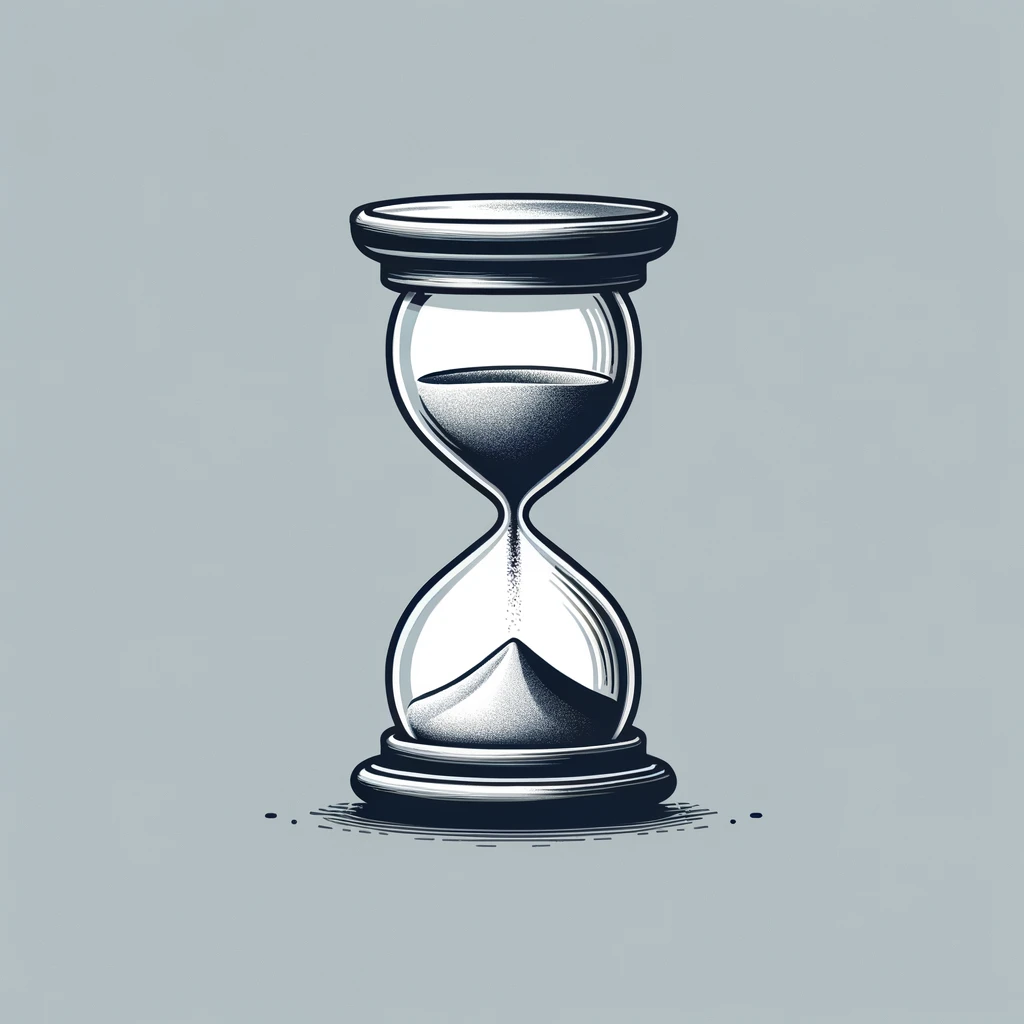User interviews are a key part of any research process, providing valuable insights and feedback that can shape the development of a product or service. However, conducting effective user interviews requires careful planning and execution. In this article, we will explore essential tips and strategies for mastering user interviews to ensure successful and insightful research.

Take Control of Your Schedule
One of the first steps in conducting effective user interviews is taking control of your schedule. It's crucial to allocate sufficient time for preparation, conducting interviews, and analyzing the data afterward. By setting aside dedicated blocks of time for each stage, you can ensure that you have enough time to thoroughly understand your research objectives and craft well-structured interview questions.
When it comes to preparation, it's important to give yourself ample time to familiarize yourself with the research topic. This includes reviewing any existing literature or data related to the subject matter, as well as brainstorming potential interview questions that will help you gather the necessary insights. Taking the time to prepare adequately will not only make you feel more confident during the interviews but will also allow you to ask more in-depth and relevant questions.
Once you have prepared, it's time to conduct the interviews themselves. Allocating sufficient time for each interview is essential to ensure that you can cover all the necessary topics and allow the participant to express their thoughts fully. Rushing through interviews can lead to incomplete or superficial responses, which may hinder the quality of your research findings.
After completing the interviews, you will need to analyze the data you have collected. This step is crucial for extracting meaningful insights and identifying patterns or trends. Allocating dedicated time for data analysis allows you to thoroughly review the interview transcripts, identify key themes, and draw conclusions that will inform your decisions.
Moreover, establishing a clear timeline for your interviews can help you stay organized and maintain focus throughout the process. Consider using a project management tool or a simple calendar to schedule your interviews and prevent conflicts or overlapping commitments.
It's also important to consider the logistics of the interviews when planning your schedule. This includes factors such as the location of the interviews, whether they will be conducted in person or remotely, and any necessary equipment or technology you may need. Taking the time to address these logistical details in your schedule will help ensure that everything runs smoothly during the interview process.
Additionally, don't forget to allocate time for breaks between interviews. Conducting back-to-back interviews without breaks can be mentally and physically exhausting. Taking short breaks allows you to recharge, reflect on the previous interview, and prepare for the next one.
Designing an Effective Schedule for Success
When designing your interview schedule, it's important to strike a balance between structure and flexibility. While having a predefined set of questions can provide a solid foundation, it's equally essential to allow the conversation to flow naturally and explore unexpected avenues of discussion.
Start by introducing yourself and explaining the purpose of the interview. This will help create a comfortable and open atmosphere, encouraging participants to share their thoughts and experiences. Before diving into the questions, consider conducting a brief icebreaker activity or small talk to establish rapport and put participants at ease.
During the interview, it's vital to actively listen and take notes. Instead of focusing solely on moving through your list of questions, make sure to capture participants' non-verbal cues and follow up on interesting or ambiguous responses. This will enable deeper exploration of their thoughts and help uncover valuable insights.
The Importance of Taking Breaks for Productivity

While it may be tempting to schedule back-to-back interviews to make the most of your time, it's crucial to prioritize breaks. Taking short breaks between interviews allows you to recharge and process the information gathered, ensuring a sharper focus for subsequent interviews.
During these breaks, you can review your notes, identify common themes or patterns, and formulate new questions based on previous insights. This reflective time can significantly enhance the quality of your interviews and guide the direction of your research.
Strategies for Recruiting the Right Participants
Recruiting the right participants can greatly impact the effectiveness of your user interviews. Consider the target audience for your product or service and identify individuals who have relevant experience or knowledge. This can be done through various channels, such as social media groups, online forums, or professional networks.
Ensure that your recruitment process includes screening participants to ensure they meet specific criteria. Conducting phone screenings or sending out pre-interview questionnaires can help assess qualifications and suitability for your research goals. This extra step can save time and ensure that you are interviewing individuals who can provide valuable insights.
The Benefits of Recording Research Sessions
Recording research sessions can be a valuable tool for analyzing and documenting user interviews. Having a record of the conversation allows you to go back and review specific details or moments that may have been missed during the initial interview.
When recording sessions, always obtain participants' consent and explain how the recordings will be used. Be mindful of privacy and data protection regulations, ensuring that personal information is handled securely and in line with ethical guidelines.
Creating a Comfortable Research Environment
Creating a comfortable research environment is vital to ensure participants feel at ease and are willing to share their honest opinions and experiences. A conducive research environment can be achieved by considering factors such as location, lighting, and seating arrangements.
Choose a quiet and neutral space where participants feel comfortable expressing their thoughts. Ensure that the lighting is adequate and that seating arrangements are relaxed and non-threatening. Additionally, having refreshments available can contribute to a relaxed atmosphere and help participants feel more comfortable.
Enjoying this article? Don't miss out on more exclusive insights and real-life digital product stories at LeadReads. Read by Top C Execs. Join here.
Establishing a Casual and Conversational Atmosphere
In addition to the physical environment, creating a casual and conversational atmosphere during interviews can foster open and honest communication. Avoid using overly formal or technical language that may intimidate participants. Instead, aim for a friendly and approachable tone.
Listen to participants actively and engage in active conversation rather than treat the interview as an interrogation. This will encourage participants to open up, share personal experiences, and provide more detailed insights. Remember that building rapport and trust with participants can lead to more authentic and valuable responses.
The Power of Open-Ended Questions in Research
When constructing your interview questions, prioritize open-ended questions that encourage participants to provide detailed and reflective responses. Open-ended questions invite participants to share their experiences, thoughts, and opinions in their own words, providing rich and nuanced insights.
Avoid questions that can be answered with a simple yes or no. Instead, focus on questions that start with "how," "why," or "tell me about." These types of questions encourage participants to delve deeper into their experiences and offer unique perspectives that can uncover valuable insights.
Mastering the Art of the Pause in Interviews
During interviews, practicing the art of the pause can significantly enhance the quality of the conversation. By allowing brief pauses after participants' responses, you create space for them to reflect further and potentially elaborate on their initial thoughts.
The pause can also be used to encourage participants to share additional details or clarify their responses. Sometimes, participants may initially provide brief or surface-level answers, but a well-timed pause can encourage them to dive deeper and provide more meaningful insights.
Shifting Focus: Asking About Behaviors Instead of Feelings

While exploring participants' feelings and opinions is important, focusing on concrete behaviors can provide valuable insights as well. Instead of asking participants how they feel about a particular feature, ask them to recall specific instances where they interacted with the feature and describe their experience in detail.
Asking about behaviors encourages participants to reflect on their actual experiences and enables you to understand their actions and decision-making process. This approach can provide tangible feedback on usability and identify areas where improvements can be made.
The Art of Effective Interviewing
Effective interviewing is a skill that can be developed and honed over time. It involves not only asking the right questions but also actively listening, observing non-verbal cues, and adapting your approach accordingly.
Being mindful of your body language and facial expressions can contribute to building trust and rapport with participants. Maintain eye contact, nod to show understanding, and exhibit genuine curiosity and interest in their responses.
Remember that effective interviewing is a continuous learning process. Reflect on each interview and identify areas for improvement. With practice and ongoing refinement, you can become a skilled interviewer and extract the most valuable insights from your research.
The Benefits of Playing Dumb in Research Interviews
Playing dumb can be a powerful technique during user interviews. By adopting a humble and curious mindset, you can encourage participants to explain concepts in simple terms, ensuring a deeper understanding of their experiences.
Avoid assuming prior knowledge or making assumptions about participants' backgrounds. Instead, ask clarifying questions and encourage them to elaborate. This approach not only helps gather more accurate data but also demonstrates respect and empathy towards participants.
Creating a Non-Judgmental Environment for Honest Answers
Creating a non-judgmental environment is crucial for encouraging participants to provide honest answers. Participants need to feel safe and free from judgment to share their true opinions, experiences, and challenges.
Avoid criticizing or dismissing participants' responses, even if they differ from your expectations or preconceived notions. Instead, practice active listening and ask follow-up questions to understand their perspectives fully. By demonstrating empathy and respect, you can foster an environment where participants feel valued and comfortable sharing their thoughts.
The Importance of Paraphrasing in Effective Communication
Paraphrasing is an essential communication skill that can help ensure mutual understanding during user interviews. After participants share their thoughts, summarize their key points back to them in your own words to confirm your understanding.
Paraphrasing not only helps clarify any misinterpretations but also shows that you genuinely listened to and valued their input. It can also encourage participants to provide more information or elaborate on their initial points.
Embracing Curiosity: Asking Questions When in Doubt
As an interviewer, it's natural to encounter moments of uncertainty or gaps in understanding. Instead of guessing or assuming, embrace curiosity and ask clarifying questions.
If you are unsure about a participant's response, politely ask for further clarification or examples. This approach not only ensures accurate data collection but also demonstrates your commitment to thoroughness and your willingness to learn from participants.
Cultivating Gratitude in Research
Lastly, cultivating gratitude throughout the research process is essential. It is essential to express appreciation to participants for their time, insights, and willingness to participate.
Consider sending a thank-you email or a small token of appreciation to participants after the interview. This simple act can leave a positive impression and encourage participants to participate in future research opportunities.
Where to go from here?
Mastering user interviews is a valuable skill that can greatly enhance the success of your research. By taking control of your schedule, designing an effective interview structure, and creating a comfortable environment, you can foster open and insightful conversations.
Remember to ask open-ended questions, embrace curiosity, and practice the art of effective interviewing. By adapting your approach, actively listening, and cultivating gratitude, you can uncover valuable insights and ultimately create products and services that meet the needs and expectations of your users.
Collecting user insights through research can be daunting. Having an expert by your side can help. If you’d like to explore how our services and how we can help book a free consult here.






